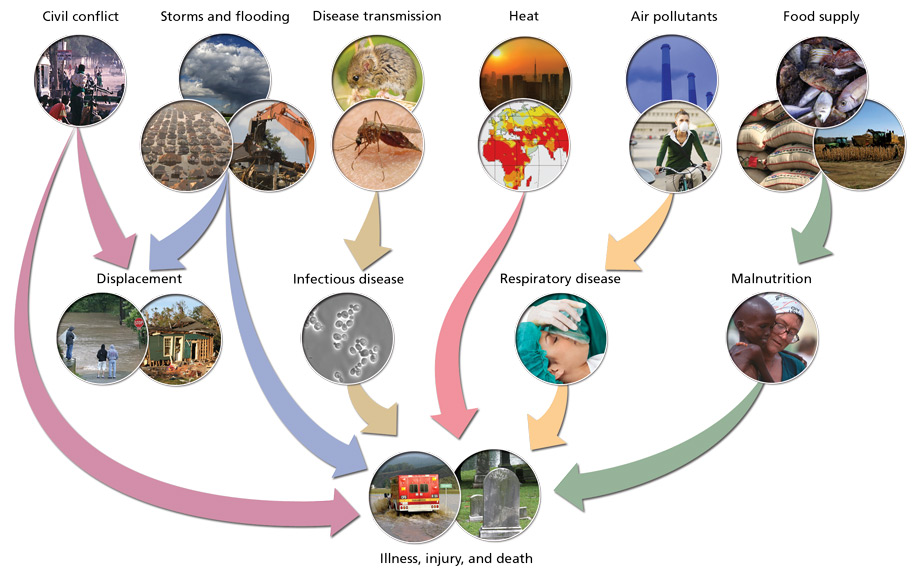You are here :
Home The Impacts of Climate Change on Human Health
|
Last Updated:: 07/08/2018
The Impacts of Climate Change on Human Health
The IPCC’s (Intergovernmental Panel on Climate Change) Third Assessment Report projected that, as we continue to change atmospheric composition, global average surface temperature will rise by 1.4 to 5.8ºC in this century, along with changes in precipitation and other climatic variables. Research needs include developing innovative approaches to analysing weather and climate in relation to human health; setting up long-term data sets to answer key questions; and improving understanding of how to incorporate outputs from Global Climate Models into human health studies.

Reaching consensus on the science
The science of climate change has achieved increasing consensus among scientists. There is increasing evidence that human health will be affected in many and diverse ways. Knowledge is still limited in many areas, for example on the contribution of short-term climate variability to disease incidence; on development of early warning systems for predicting disease outbreaks and extreme weather events; and on understanding how recurring extreme events may weaken adaptive capacity.
Challenges for scientists
Climate change poses some special challenges, including the complexity of causal process, the unavoidable uncertainties, and temporal displacement of anticipated impacts into the future. Some key research topics to address include identifying where first effects of climate change on human health will be apparent; improving estimates of climate change impacts; and better expressing the uncertainties associated with studies of climate change and health.
Source: http://www.who.int/globalchange/climate/summary/en/index12.html
===============================================================================